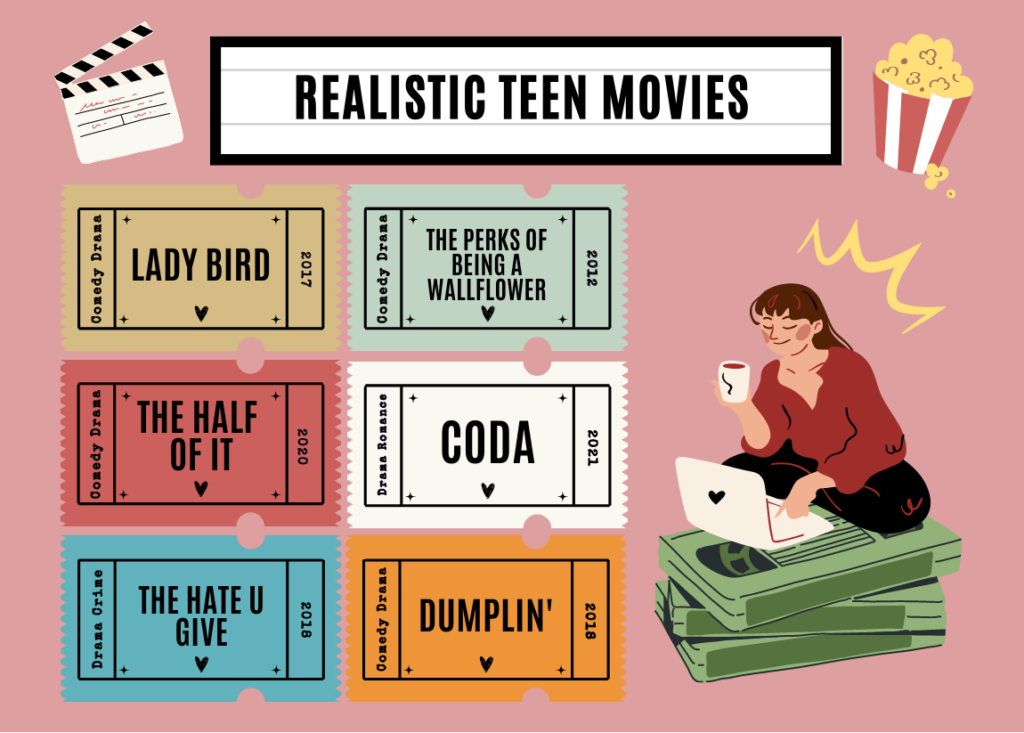
By Hannah Kwok,
Staff Writer
Growing up, films shape us, change our perspective of life and overall entertain and nurse our dreams of possibility. From ‘80s classics like “Pretty in Pink” to the Disney Channel favorites of “Lemonade Mouth,” I always found comfort in films that explored youth and what it meant to be a teenager searching for adventure, love, identity and maturity.
However, while watching the new era of coming-of-age films, I am often left repulsed and horrified. What once symbolized empowerment and a safe space for teenagers has mutated into mass-produced and waterdowned plotlines of a movie.
What’s unfortunate is not only the scriptwriters’ tragic attempts of cramming in gen-z slang, but that, by the end credits, I am left disappointed and misled instead of entertained or represented.
How many times do I need to ask myself: Is this what average teenagers are experiencing? Mega-mansion parties every other day, bite-sized backpacks, Prom court as my life’s mission and by the end of it accepted into Ivy League schools without a glimpse of student working habits? Not to mention the intense glamorization of drugs, alcohol and sex, but I find contemporary coming-of-age television at its lowest—something daddy’s money can’t be the solution to.
In order to connect with today’s youth, coming-of-age films need to showcase realistic teen struggles in all of their complexities. It doesn’t help when teen protagonists are presented in the body of 30 year-old models/actors—only further disregarding the awkward but natural stages of puberty.
Teens need to be emotionally validated by other empowering teens through normalizing topics such as mental health, body image, academic burnt out or parental conflicts.
Though they may seem like ridiculous teen comedies, the risk of a single story or one perspective is more damaging than the millions of dollars spent in producing them. Hyper-realistic films only lead to disappointment when lavish lifestyles are not attainable for everyone. Because of this, it is crucial that teens have representative role models who inspire and portray the potential we all deserve to see and believe in for ourselves.
